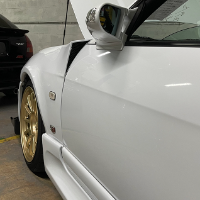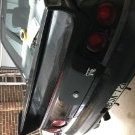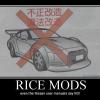TEST RESULTS: Fuel Catalyst Products
Announcements
-
Similar Content
-
Latest Posts
-
Took it to all Japan day. Thrashed it all day and it will still drive home. Very very happy man right now
-
I'd say closer to OG GTX3582R, just smaller trim - so 59mm inducer/82mm exducer as opposed to 62/82 for the first gen GTX3582R. Yeah EFRs were boss, the EFR8474 is still an absolute beast and it perplexes me that people still go to things like Turbosmart/Garrett etc when the results people are getting with those are pretty unremarkable compared to what you could get with a turbo available well before those options came out. DriftSquid (I think) "upgraded" from an EFR9174 to a Turbosmart turbo and promised a comparison video - and kinda shuffled awkwardly and did a bit of diversion from the fact that they didn't get any improvement going to the currently massively hyped brand of turbo from a turbo that was a bit of a frankenstein that had been well superceded in it's own range before the Turbosmart unit he put on there even came out. I suspect the EFR would outperform most Xonas for what a lot of less-insane RB owners would go for, in the 400-600kw range but the Xonas are looking hard to beat up to maybe in the mid 700kw range at this stage- basically where EFRs don't really reach, and before the Precision turbos take over. What the Xonas do well in the "EFR range" is be easier to package etc, and work very well if a divided housing doesn't suit your application.
-
Are you sure the gasket is blown? What are the issues? Thermocure is the only flush I've seen do anything with rust, very impressed with that, Prestone, rust will be by the pool having a cigarette.
-
And since the flush you have a blown head gasket? Have you lifted the head off yet?
-









Recommended Posts
Create an account or sign in to comment
You need to be a member in order to leave a comment
Create an account
Sign up for a new account in our community. It's easy!
Register a new accountSign in
Already have an account? Sign in here.
Sign In Now